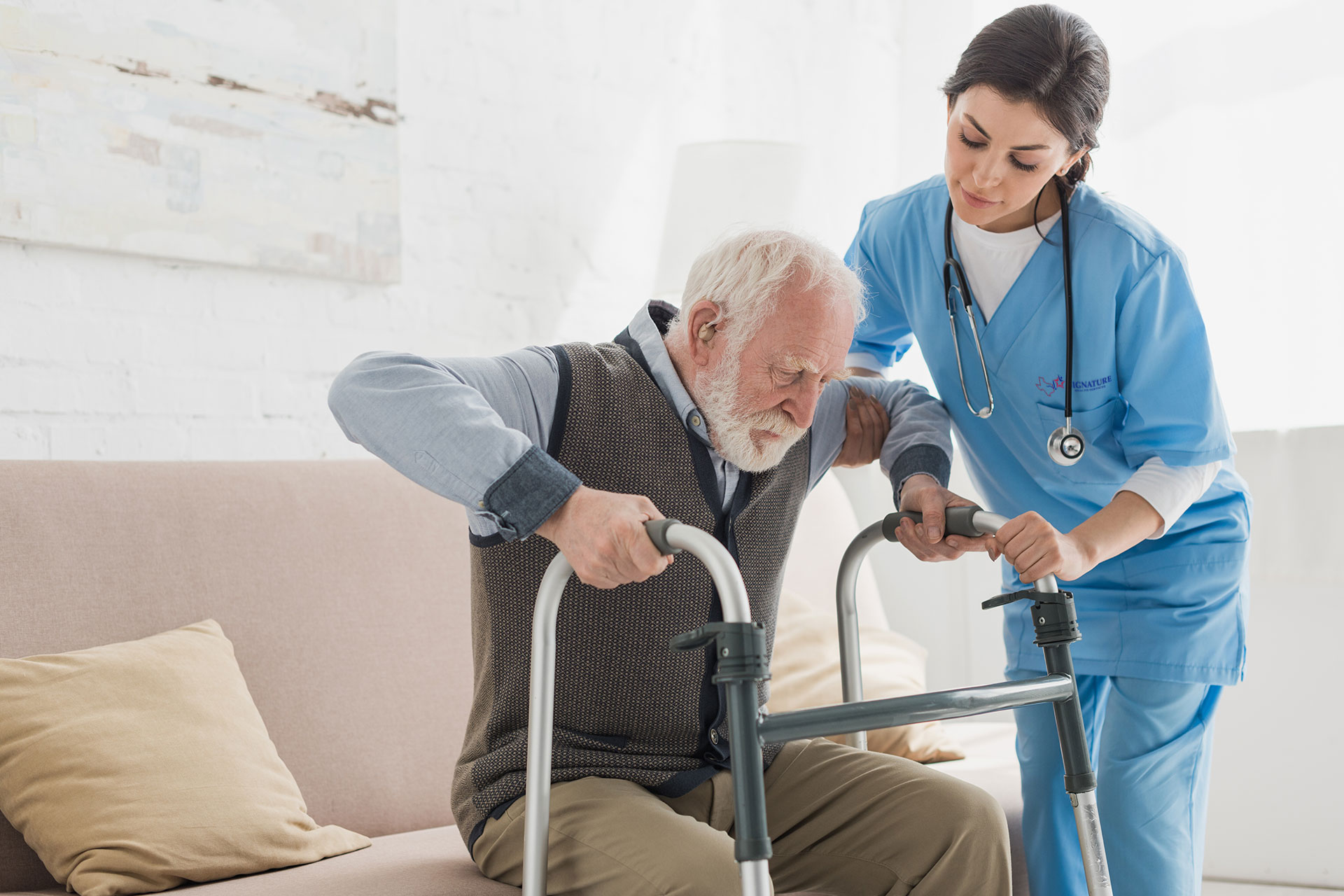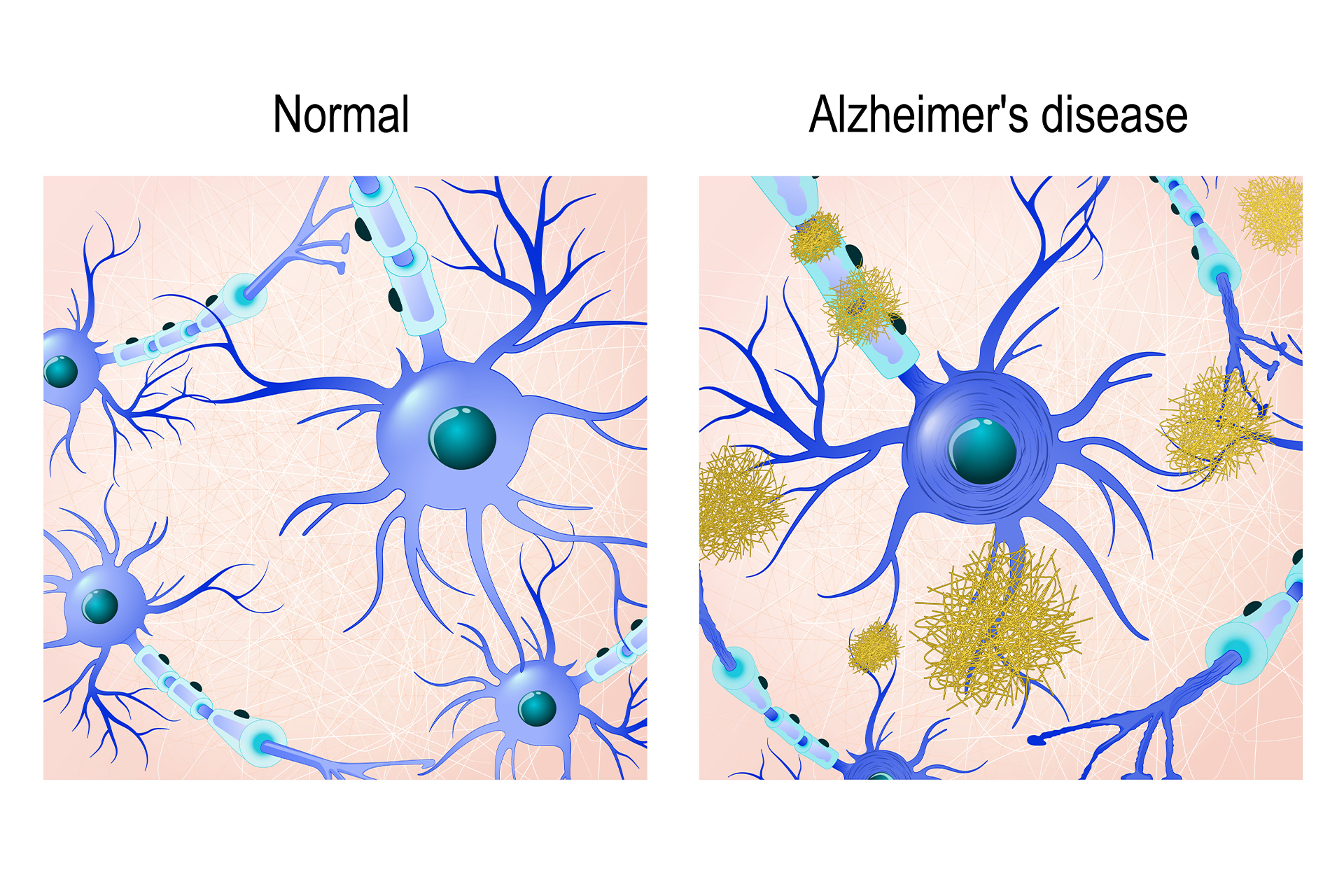September is recognized globally as World Alzheimer’s Month, a crucial time for raising awareness about Alzheimer’s disease, the most common form of dementia that affects cognitive function. As we observe September as Alzheimer’s Awareness Month, it is essential to highlight the importance of home nursing care for those living with Alzheimer’s and explore innovative approaches to managing the disease.
Understanding Dementia and Alzheimer’s Disease
Alzheimer’s is a progressive neurological disease that leads to the deterioration of memory, thinking skills, and the ability to carry out simple tasks. As the disease follows its natural progression, the symptoms become more severe, posing significant challenges for both patients and caregivers. Understanding the stages of Alzheimer’s and recognizing its early symptoms can help better prepare for the future.
In the early stages of Alzheimer’s, patients may still lead relatively independent lives, participating in social and professional activities. However, they might begin to have difficulty focusing, recalling recent events, or remembering specific words or names. As the disease progresses to moderate Alzheimer’s, memory loss becomes more evident, along with disorientation and other physical symptoms. Patients may need help organizing their day, following instructions, and performing routine tasks such as dressing or preparing meals.
In the later stages of Alzheimer’s, patients often require assistance with most daily activities, including sitting, walking, eating, and swallowing. They may struggle to remember where they are, who is around them, or how to perform essential functions. This level of dependency makes home nursing critical to managing the disease.
The Role of Home Nursing in Alzheimer’s Care
As Alzheimer’s disease advances, personalized home nursing care becomes increasingly important. Home nursing allows patients to receive the care they need in a familiar and comfortable environment, which can be particularly beneficial for those with dementia. Skilled nurses and caregivers can provide essential services such as medication education, assistance with daily activities, and emotional support, all within the patient’s home.
Home nursing care also offers significant advantages for family members, who are often the primary caregivers. With professional support, family caregivers can take breaks, manage their stress levels, and focus on their own well-being. This support system is crucial in preventing caregiver burnout, a common issue when caring for a loved one with Alzheimer’s.
Practical Tips for Home Nursing
During September, World Alzheimer’s Month, there are several ways to engage in the movement and make a positive impact on the lives of Alzheimer’s patients. Here are some practical tips for those involved in home nursing care:
Supporting Family Caregivers
The responsibility of family caregivers can often be overwhelming, leading to stress, fatigue, and even depression. September represents an opportunity to recognize the challenges faced by family caregivers and to emphasize how seeking professional help when needed is so important.
Home nursing care provides essential support to everyone involved. By sharing the caregiving duties with trained professionals, family members can alleviate some of the pressures that come with caring for a loved one with Alzheimer’s. This shared approach allows families to focus on maintaining their relationships and personal well-being while ensuring their loved ones receive the best possible care.
Time to Act on Alzheimer’s
The theme for World Alzheimer’s Month 2024 is “Time to Act on Dementia, Time to Act on Alzheimer’s.” This year’s campaign focuses on shifting attitudes towards dementia and Alzheimer’s, challenging the stigma that still surrounds these conditions, and promoting positive steps towards creating a more dementia-friendly society.
Throughout September, the Alzheimer’s community is encouraged to participate in activities and events designed to raise awareness and support those affected. One of the key events is the Walk to End Alzheimer’s, a powerful demonstration of solidarity and commitment to the cause. In this event, people can contribute to the global effort to fund research, support services, and promote Alzheimer’s awareness.
How to Observe World’s Alzheimer’s Month
There are many ways to get involved during September World Alzheimer’s Month and make a meaningful impact. Your actions can help spread awareness and support those affected by Alzheimer’s disease. Here are some suggestions:
- 1Educate Yourself and Others – Take the time to learn about Alzheimer’s disease, its symptoms, and the benefits of home nursing care. Share this information with others to help reduce stigma and promote understanding.
- 2Support Caregivers – Recognize the vital role caregivers play in the lives of Alzheimer’s patients. Offer them your support by being there, offering respite care or emotional support.
- 3Participate in Awareness Events – Join your local Walk to End Alzheimer’s or other events during September. These events are a great way to show your support and contribute to the global effort to combat Alzheimer’s.
- 4Advocate for Better Care – Use your voice to advocate for policies that support home nursing and other care options that improve the quality of life for Alzheimer’s patients. Push for increased funding for Alzheimer’s research and better access to care services.
September World Alzheimer’s Month is a critical time to focus on the needs of those living with Alzheimer’s disease. The 2024 campaign, with its theme of “Time to Act on Dementia, Time to Act on Alzheimer’s,” calls for immediate and sustained action to support those affected by this condition. By emphasizing the importance of home nursing care, we can ensure that Alzheimer’s patients receive the compassionate and personalized care they need to live with dignity and comfort in their own homes. This September, let’s come together to raise awareness, support caregivers, and advocate for a future where everyone affected by Alzheimer’s receives the care they deserve.
Call Signature 24/7 at 1 (800) 277-8291 for excellence in skilled and compassionate home health care.

Your Complete Home Health Care Solution!
ALWAYS ON CALL
| Monday – Sunday | 24 / 7 |
1 (800) 277-8291 (option 1)
COUNTIES SERVED
OUR VALUES
TESTIMONIALS

I love all of my home health people.

All Signature staff as well as therapy were very helpful.

Their services have always been great.

I really love my physical therapist. Gary has helped me so much.

This has been one of the best agencies. Very caring nurses.

I’ve had a really good physical therapist and really nice nurses.

I have had excellent care & would recommended them to anyone.

Gary Dixon is the very best physical therapist in Baytown and Houston Area.



